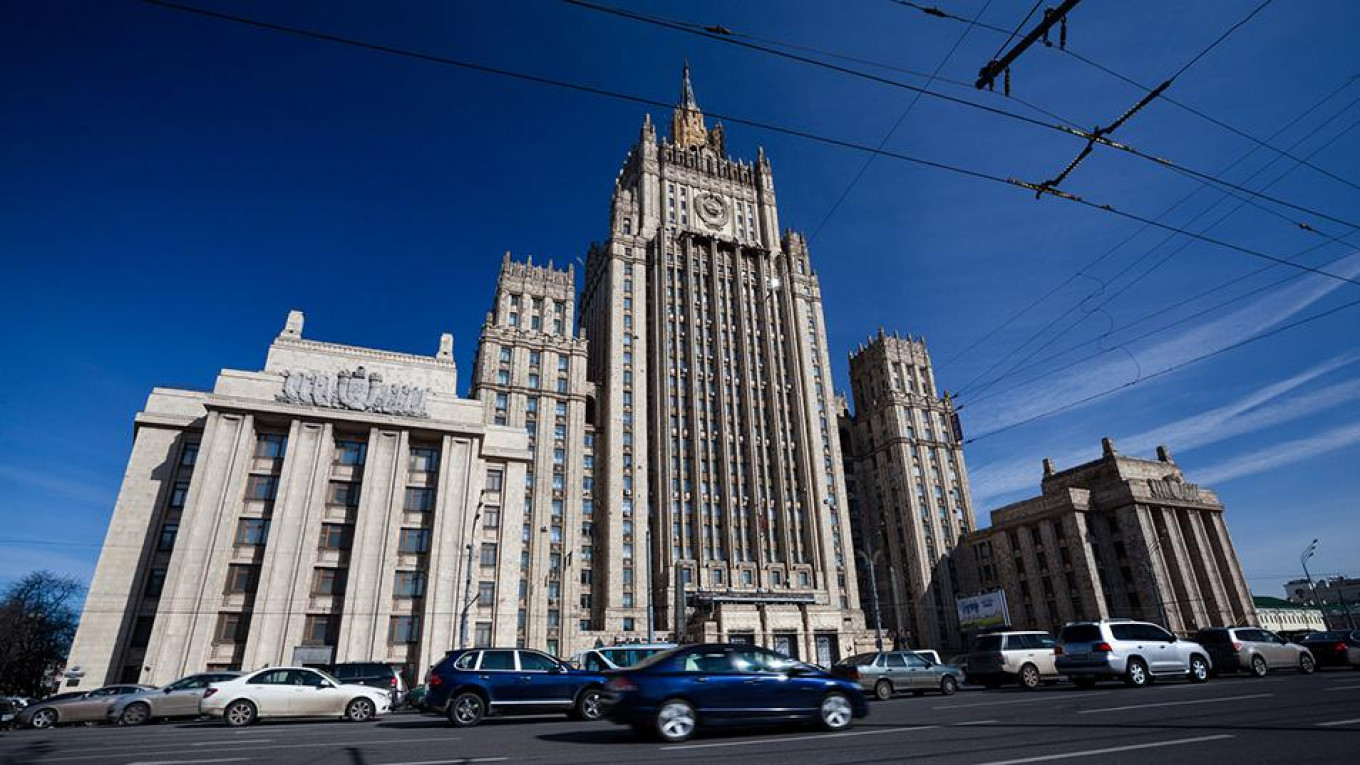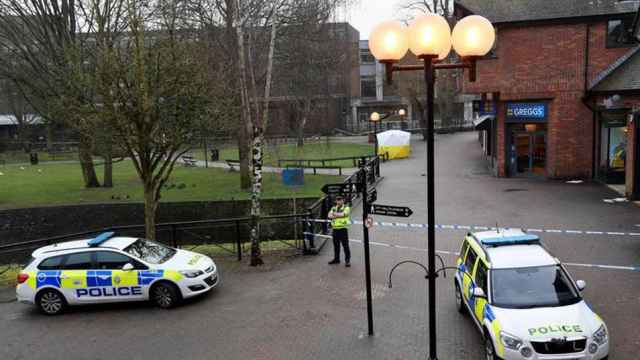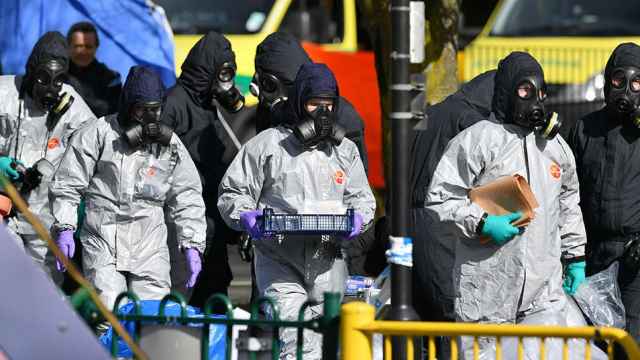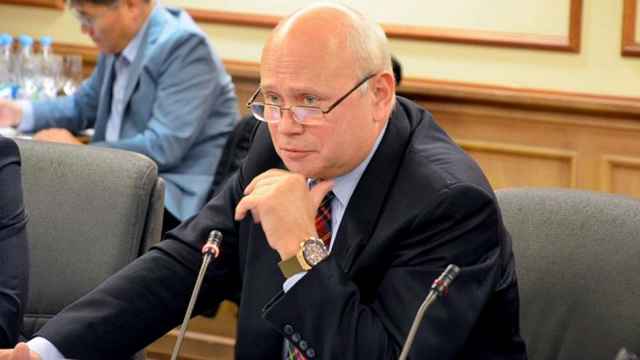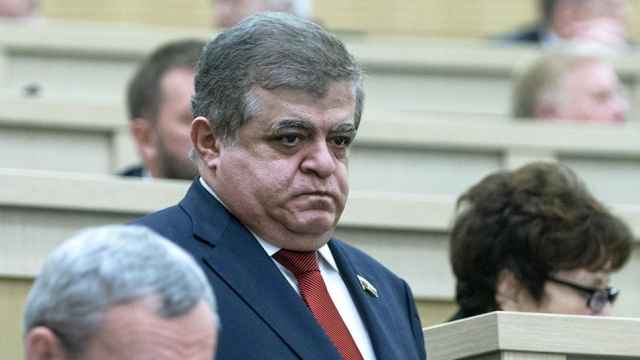Russia summoned a slew of senior Western diplomats on Friday to tell them how many of their embassy officials it was expelling in a worsening standoff with the West over the poisoning of a former Russian spy and his daughter in Britain.
Moscow said on Thursday it was expelling 60 U.S. diplomats and would eject scores from other countries that had joined London and Washington in censuring Moscow over the poisoning of Sergei Skripal and his daughter Yulia.
Britain and Russia have already expelled 23 of each other's diplomats over the first known use of a military-grade nerve agent on European soil since World War Two, but Laurie Bristow, Britain's ambassador, was summoned again on Friday.
The Russian Foreign Ministry said in a statement Bristow had been told London had just one month to cut its diplomatic contingent in Russia to the same size as the Russian mission in Britain.
It was not immediately clear if that meant a serious cut in staff numbers. A spokeswoman for the British Foreign Office saidRussia's response was regrettable and that Moscow was in flagrant breach of international law over the killing of the former spy.
The poisoning, in southern England, has united much of the West in taking action against what it regards as the hostile policies of President Vladimir Putin. This includes U.S. President Donald Trump, who Putin had hoped would improve ties.
Russia rejects Britain's accusation it stood behind the attack and has cast the allegations as part of an elaborate Western plot to sabotage East-West relations and isolate Moscow.
The hospital where she is being treated said on Thursday that Yulia Skripal was getting better after spending three weeks in a critical condition due to the nerve toxin attack. Her father remains in a critical but stable condition.
The BBC, citing "separate sources", reported on Friday that Yulia was "conscious and talking".
Expulsions
The Russian Foreign Ministry said in a statement on Friday it was summoning the representatives of a "raft of countries" that had taken what it called unfriendly action against Russia in solidarity with Britain because of the Skripal affair.
"The envoys will be handed protest notes and told about the Russian side's retaliatory measures," the ministry said.
Embassy officials from France, Germany, Italy, Poland, the Netherlands, Croatia, Belgium, Ukraine, Sweden, Australia, Canada and the Czech Republic were all seen arriving in their official cars at the Foreign Ministry building in Moscow.
The United States and a range of Western countries are expelling around 130 Russian diplomats and Moscow has said its own measures will precisely mirror those actions.
Among those nations whose diplomats were shown the door were the Netherlands, Italy, Finland, Poland and Lithuania.
Emerging from the Russian Foreign Ministry building, German ambassador Rudiger von Fritsch said Russia had questions to answer about the poisoning of Skripal, but that Berlin remained open to dialogue with Moscow.
The U.S State Department said after Russia announced the expulsions on Thursday evening, that it reserved the right to respond further, saying the list of diplomats designated for expulsion by Russia showed Moscow was not interested in diplomacy. Kremlin spokesman Dmitry Peskov, in a conference call with reporters on Friday, disagreed with that assessment, saying that Putin still favoured mending ties with other countries, including with the United States.
Putin discussed Russia's package of retaliatory measures with the Security Council on Friday.
A Message from The Moscow Times:
Dear readers,
We are facing unprecedented challenges. Russia's Prosecutor General's Office has designated The Moscow Times as an "undesirable" organization, criminalizing our work and putting our staff at risk of prosecution. This follows our earlier unjust labeling as a "foreign agent."
These actions are direct attempts to silence independent journalism in Russia. The authorities claim our work "discredits the decisions of the Russian leadership." We see things differently: we strive to provide accurate, unbiased reporting on Russia.
We, the journalists of The Moscow Times, refuse to be silenced. But to continue our work, we need your help.
Your support, no matter how small, makes a world of difference. If you can, please support us monthly starting from just $2. It's quick to set up, and every contribution makes a significant impact.
By supporting The Moscow Times, you're defending open, independent journalism in the face of repression. Thank you for standing with us.
Remind me later.



